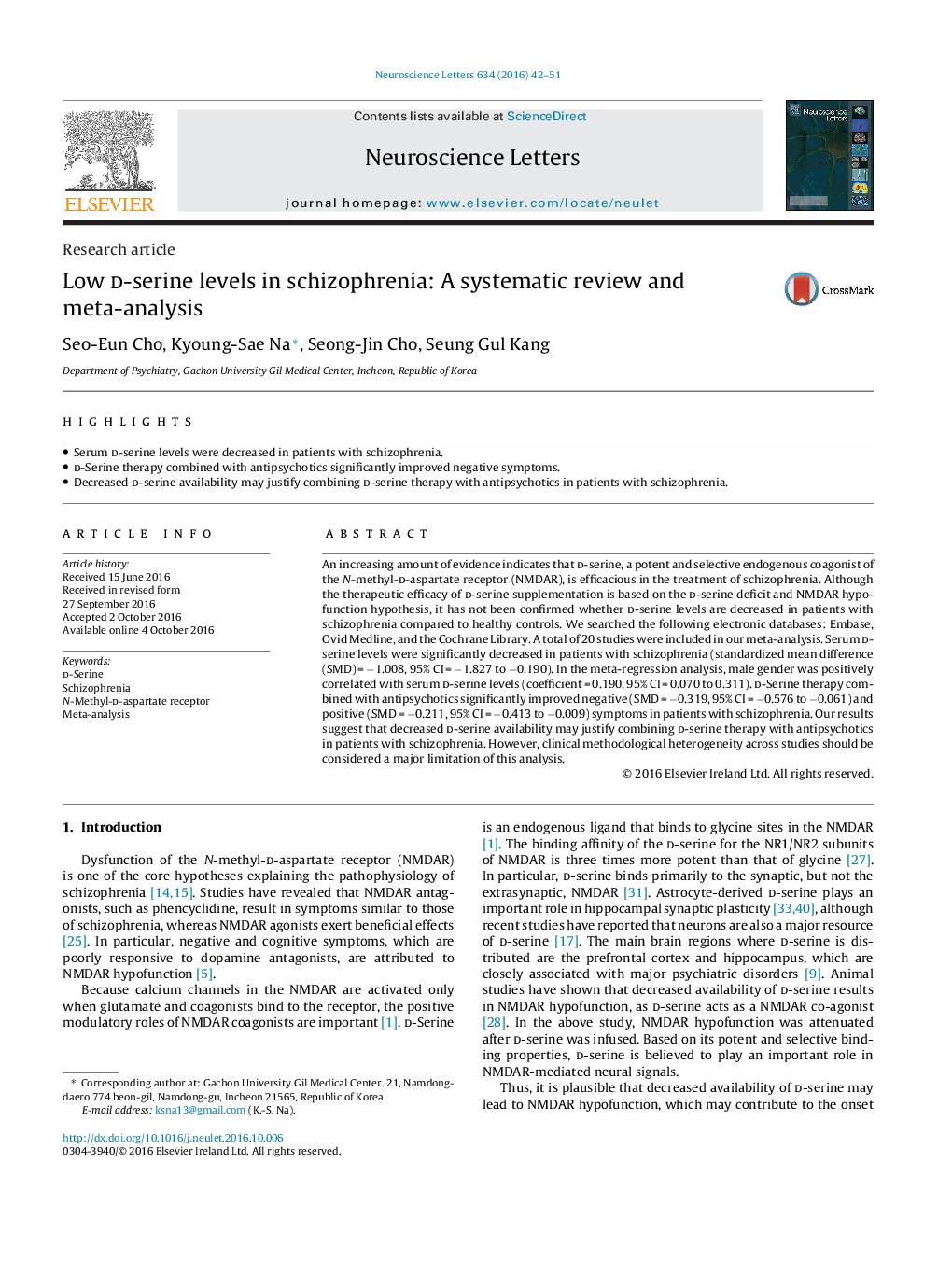| Article ID | Journal | Published Year | Pages | File Type |
|---|---|---|---|---|
| 6278855 | Neuroscience Letters | 2016 | 10 Pages |
Abstract
An increasing amount of evidence indicates that d-serine, a potent and selective endogenous coagonist of the N-methyl-d-aspartate receptor (NMDAR), is efficacious in the treatment of schizophrenia. Although the therapeutic efficacy of d-serine supplementation is based on the d-serine deficit and NMDAR hypofunction hypothesis, it has not been confirmed whether d-serine levels are decreased in patients with schizophrenia compared to healthy controls. We searched the following electronic databases: Embase, Ovid Medline, and the Cochrane Library. A total of 20 studies were included in our meta-analysis. Serum d-serine levels were significantly decreased in patients with schizophrenia (standardized mean difference (SMD) = â1.008, 95% CI = â1.827 to â0.190). In the meta-regression analysis, male gender was positively correlated with serum d-serine levels (coefficient = 0.190, 95% CI = 0.070 to 0.311). d-Serine therapy combined with antipsychotics significantly improved negative (SMD = â0.319, 95% CI = â0.576 to â0.061) and positive (SMD = â0.211, 95% CI = â0.413 to â0.009) symptoms in patients with schizophrenia. Our results suggest that decreased d-serine availability may justify combining d-serine therapy with antipsychotics in patients with schizophrenia. However, clinical methodological heterogeneity across studies should be considered a major limitation of this analysis.
Related Topics
Life Sciences
Neuroscience
Neuroscience (General)
Authors
Seo-Eun Cho, Kyoung-Sae Na, Seong-Jin Cho, Seung Gul Kang,
